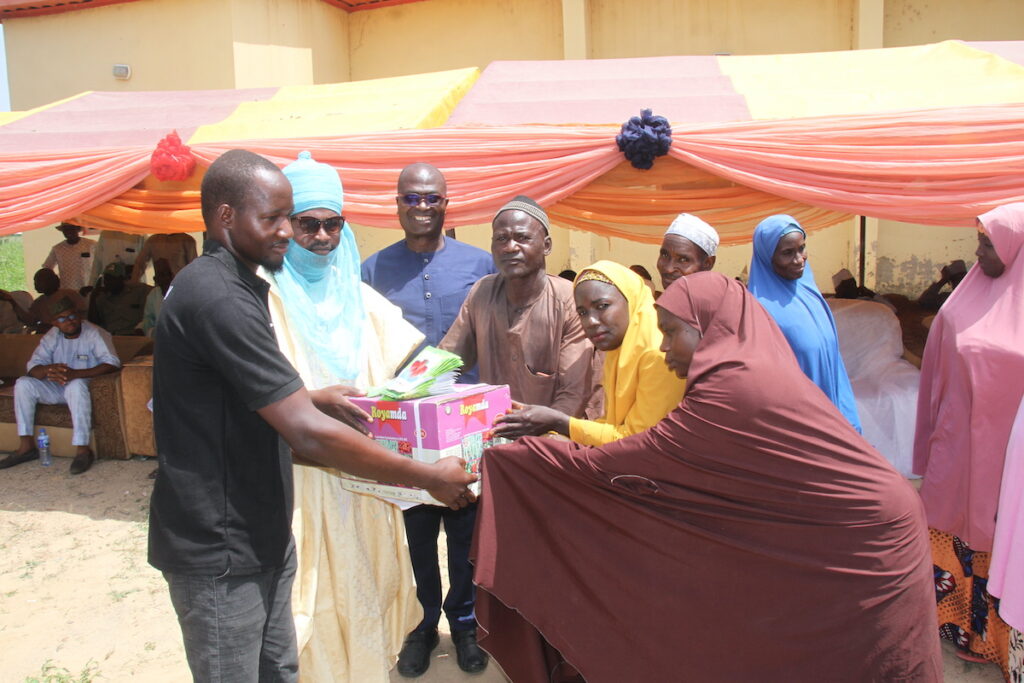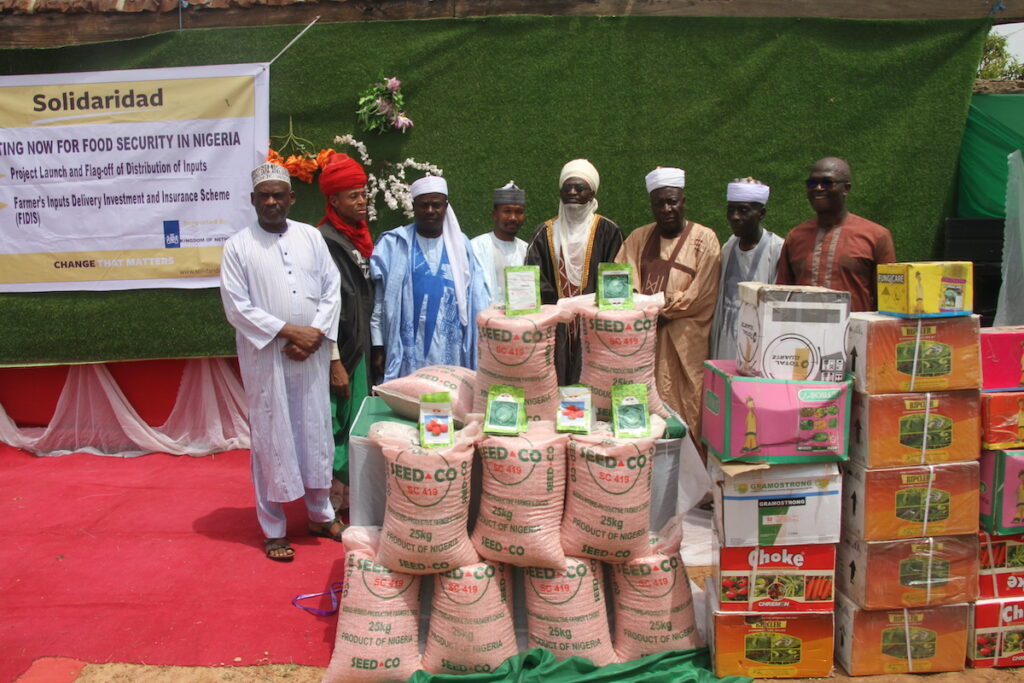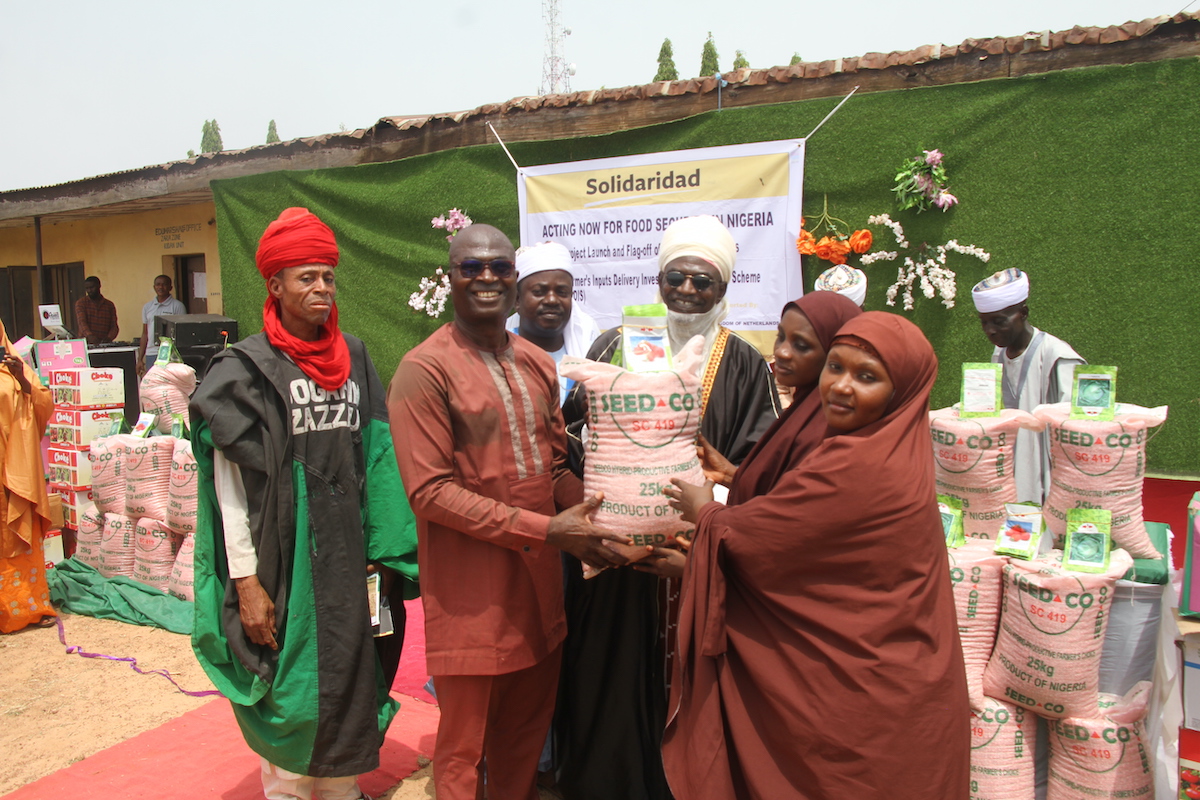Solidaridad’s Kenechukwu Onukwube, a programme manager in Nigeria, helps to distribute seeds to farmers.
Nigeria has a pressing need to enhance agricultural productivity. Smallholder farmers working less than 2 hectares of land comprise roughly 70 percent of the Nigeria’s farming population, and produce 90 percent of the country’s agriculture output. Despite their substantial contribution, production levels have fallen over the past 20 years, and these farmers are unable to satisfy the country’s food crop needs.
Recognizing the vital role of quality inputs in enhancing productivity, Solidaridad in West Africa has introduced the Farmers’ Inputs Delivery and Investment Scheme (FIDIS) under the Acting Now project in Nigeria to increase smallholder farmers’ access to quality inputs.
The FIDIS operates on a credit system enabling farmers to procure quality seeds upfront and pay for them at a later date. The repaid funds are then channeled into the community farmer groups to facilitate the future procurement and distribution of inputs during upcoming planting seasons.
The scheme will empower farmers to invest in their businesses and contribute to the transformation of the fruit and vegetable market in Nigeria.
Kenechukwu Onukwube, Programme Manager for Solidaridad in Nigeria
The FIDIS aligns with Solidaridad’s strategy to improve food security and provide support in an effort to build resilient food systems.

States, like Kaduna and Kano, which face increasing desertification and climate change impacts were among those receiving support. Solidaridad has distributed farm inputs worth 20.7 million Nigerian naira (23,000 USD) to 5,125 smallholder farmers, including maize, tomato, okra and pepper seeds for the planting season.
Halliru Tukura is the District Head of Kudan, a community benefiting from the initiative. He emphasizes that, given the current high input prices, FIDIS will significantly improve the welfare of smallholder farmers and contribute to overall food security.
The Acting Now project
The Acting Now project targets 12,000 farmers in Nigeria, and supports the sustainable production of fish, potatoes, maize, fruits and vegetables in the states of Kaduna, Kano, Plateau and Ogun.

Acting Now has a particular focus on gender and youth inclusivity and climate-smart production. Women make up the bulk of the targeted group of smallholders. The programme also has dedicated interventions to engage young people.
The initiative is designed to provide farmers with knowledge and skills for sustainable production and addresses vulnerable food production systems in the country. Additionally, it supports entrepreneurship, promotes technology integration, enhances financial literacy, and facilitates market access.
The programme is funded by the Kingdom of the Netherlands as part of a comprehensive effort to transform the agricultural landscapes within implementing countries. In Nigeria, Acting Now seeks to increase farmer resilience by establishing robust farms and food systems that can mitigate the effects of climate change, while increasing food security for those in need.

